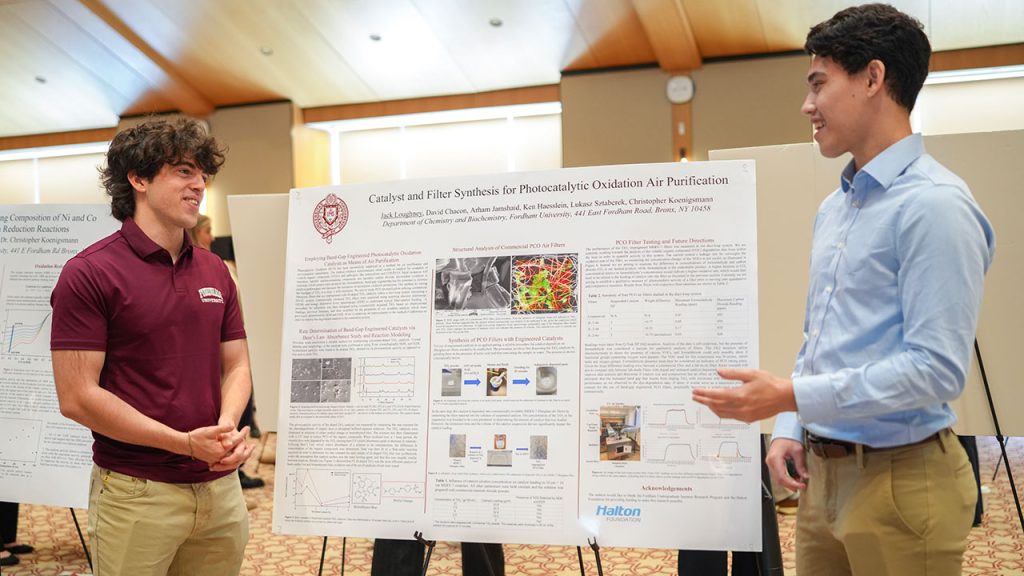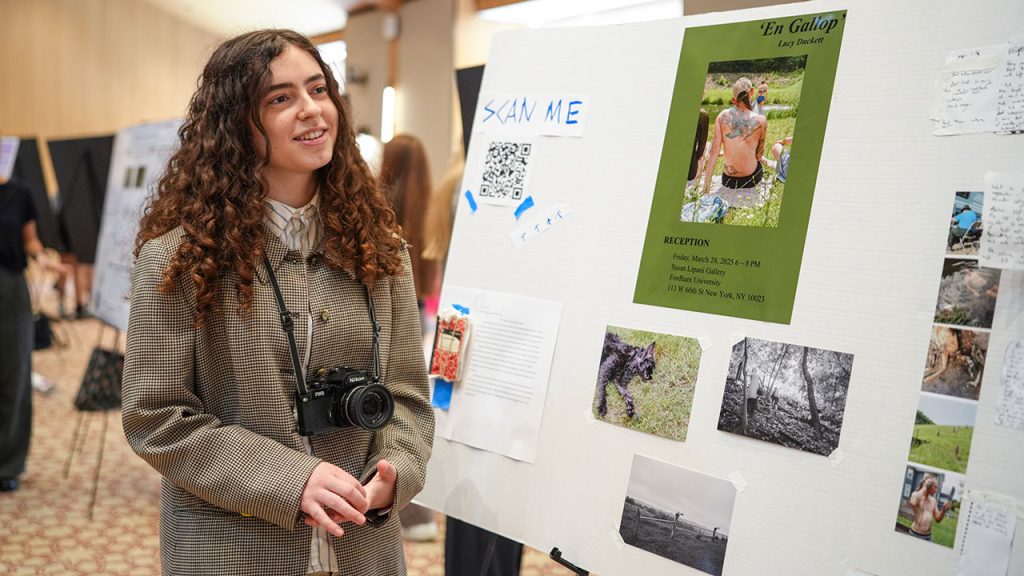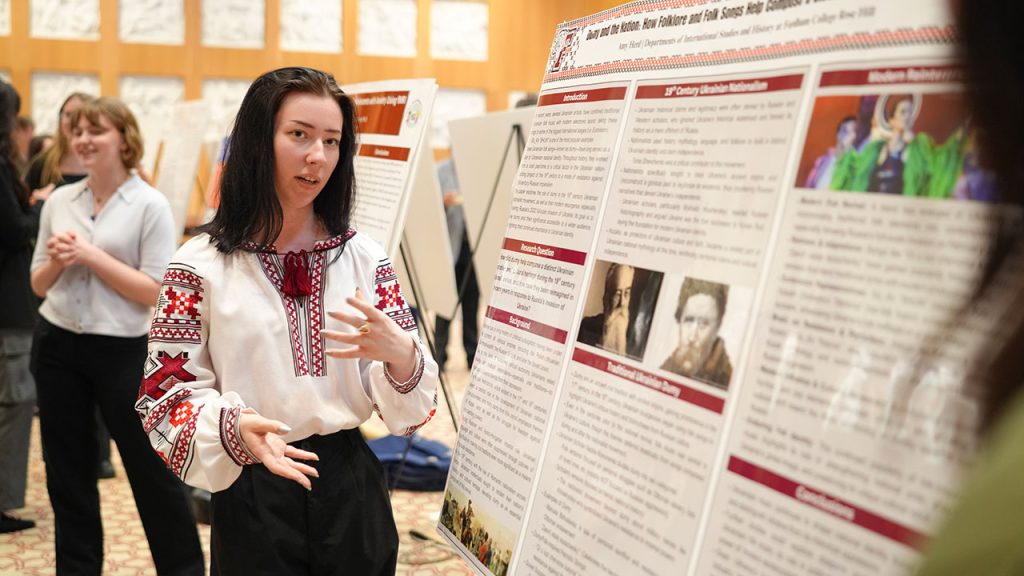From new air-filtering techniques to Ukrainian folk songs to Midwestern LGBTQ farmers, the topics that Fordham’s undergraduate researchers focused on clearly resonated deeply with them. They presented their projects at the annual Fordham College at Rose Hill Undergraduate Research Symposium on April 30.
Ukrainian Folk Songs and Identity
Traditional Ukrainian folk songs have surged in popularity since the Russian invasion of Ukraine in 2022. Amy Herd, a senior international studies and history major who traces her roots to the country, explored why in her project. She said the songs were critical in the original Ukrainian nation-building movement in the 19th century, because they were a vessel through which the country could carve out a distinct, separate identity.
“The music scene is key right now in cultural resistance to Russia. You have people who can’t necessarily join the military, so they resist by leaning into this music and leaning into this folk identity,” she said. “‘Oi u luzi,’ which translates as ‘Oh, the Red Viburnum in the Meadow,’ for instance, is a patriotic, folk-inspired anthem that has been remixed into heavy EDM genres that are played over montages of the Ukrainian military fighting.”

Purifying Air Without Harmful Byproducts
Photo catalytic oxidation is a common technique for purifying air that relies on titanium dioxide. Working with associate professor Christopher Koenigsmann, junior biochemistry major Jack Loughney and five other undergraduates researched ways to facilitate the process without generating undesirable byproducts like formaldehyde.
“We want to take the crystals that we’ve made and put them into an air purifier and study those compared to the ones that have pure titanium dioxide,” he said.
“If we create more carbon dioxide compared to the undesired product, like formaldehyde, that’s a success.”

Portraits of LGBTQ Farmers
This past summer, Lucy Duckett, a senior majoring in photography and journalism, sought to capture the normalcy of queer farmers in marginalized communities in rural Wisconsin, Michigan, and Ohio. In addition to displaying her photos at the Lipani Gallery at Lincoln Center, they are displayed online.
“I took about 2,000 pictures on film. Film makes me think about a picture more,” she said.
Duckett said mastering the technical aspects of the project was challenging, but the biggest takeaway was the amount of work that needed to be done before a single frame was captured.
“You really have to establish relationships with people before you take pictures. That’s like an art. I did street photography before, and I was so used to just taking pictures,” she said. Now my number one thing with photography projects is just establishing relationships.”

The Experiences of Black Men in New York’s Prisons
During his sophomore year, Matthew Malefyt took a class with Professor Mark Chapman and was fascinated by the research Chapman is doing about the experience of Black men in prison. Malefyt interviewed seven formerly incarcerated men who served time in New York state prisons and shared the ways they survived behind bars and how they were able to thrive when they reentered society.
“Many of them were tried as adults, even though they were sent to prison when they were 15 or 16. So for them, all they knew was going through prison. They don’t have a lot of memories before that,” said Malefyt, a senior philosophy major.
“What I learned is how people can adapt, and the amazing capability that humans have to strive for education and growth, in spite of being in such a horrible environment.”

